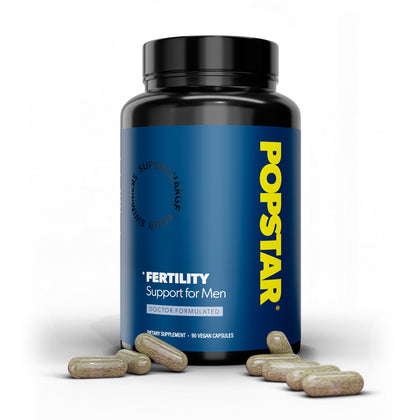

Testosterone therapy, often prescribed to address low testosterone levels in men, has been a subject of considerable interest and debate in recent years. While testosterone replacement therapy (TRT) can offer numerous benefits for individuals experiencing symptoms of low testosterone, such as decreased libido, fatigue, and muscle loss, there are concerns about its impact on fertility and sperm health. Understanding the relationship between testosterone therapy and sperm health is crucial for men considering or currently undergoing TRT.
The Role of Testosterone in Male Reproductive Health
Testosterone is a hormone primarily produced in the testicles and is essential for the development of male reproductive tissues, including the testes and prostate. It also plays a crucial role in sperm production (spermatogenesis) and is critical for maintaining libido and sexual function. Testosterone levels typically peak during adolescence and early adulthood and gradually decline with age.
Low Testosterone and Its Effects
Low testosterone levels, also known as hypogonadism, can occur due to various factors, including aging, certain medical conditions, obesity, and lifestyle factors. Symptoms of low testosterone can significantly impact quality of life, leading many men to seek treatment.
Testosterone therapy aims to restore testosterone levels to a normal range, alleviating symptoms and improving overall well-being. Common forms of TRT include injections, topical gels, patches, and implantable pellets. However, the effects of testosterone therapy on sperm health and fertility can be catastrophically adverse in men trying to have a baby in the future.

The Impact of Testosterone Therapy on Sperm Health
Research examining the effects of testosterone therapy on sperm health suggests that TRT may suppress sperm production, leading to decreased sperm count and sperm motility. Additionally, testosterone therapy can inhibit the production of follicle-stimulating hormone (FSH) and luteinizing hormone (LH), which are crucial for spermatogenesis. Testosterone replacement in men of childbearing age needs to be avoided.
Considerations for Men Considering Testosterone Therapy
Before starting testosterone therapy, men should undergo a comprehensive evaluation, including a thorough medical history, physical examination, and hormone testing. It's essential to identify any underlying causes of low testosterone and assess the potential benefits and risks of TRT.
For men concerned about fertility preservation, alternative treatment options may be considered, such as selective estrogen receptor modulators (SERMs) or human chorionic gonadotropin (hCG), which can stimulate testosterone production without suppressing sperm production.
Additionally, men considering testosterone therapy should discuss their reproductive goals with their healthcare provider. For those planning to father children in the future, temporary cessation of TRT or alternative fertility preservation methods, such as sperm banking, may be recommended.
Monitoring and Management
Regular monitoring of testosterone levels and sperm parameters is essential for men undergoing TRT. Healthcare providers can adjust treatment protocols based on individual responses and goals, optimizing testosterone levels and sperm health.
Close collaboration between patients and healthcare providers is crucial throughout the course of testosterone therapy. Open communication allows for identifying any concerns or changes in symptoms, enabling timely adjustments to treatment plans.
Conclusion
Testosterone therapy can provide significant benefits for men with low testosterone levels, improving symptoms and quality of life. However, its potential impact on sperm health and fertility requires careful consideration, particularly for men planning to have children in the future.
Ultimately, the decision to undergo testosterone therapy should be made in consultation with a knowledgeable healthcare provider who can provide personalized guidance based on individual needs and goals. By weighing the potential benefits and risks of TRT and exploring alternative treatment options, men can make informed decisions to optimize their hormonal balance and reproductive health.





